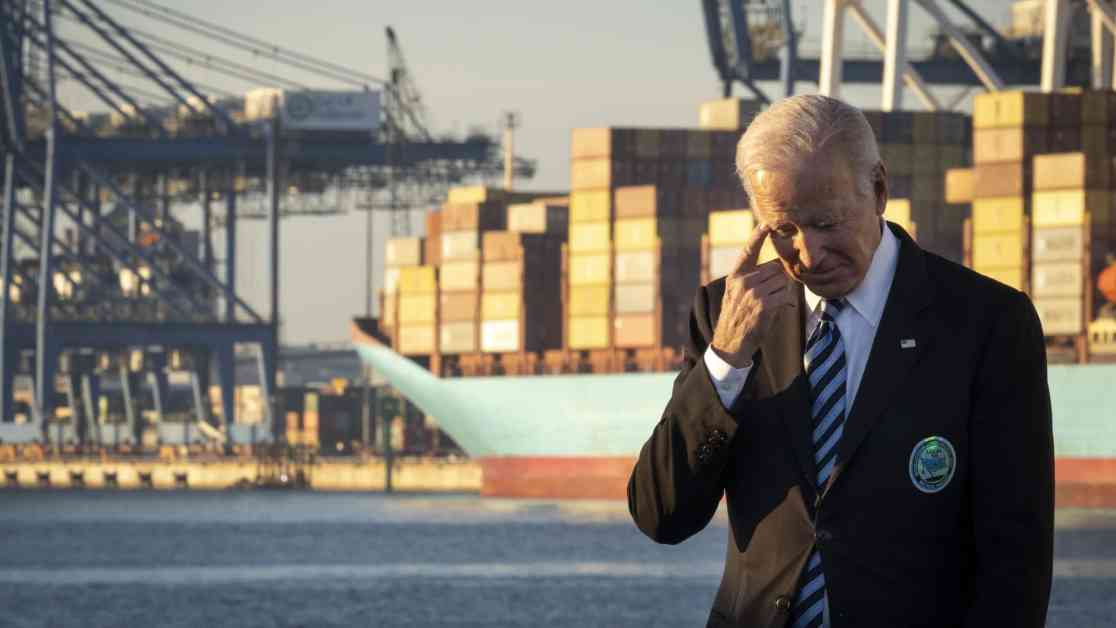President Joe Biden and his administration have decided not to use the Taft-Hartley Act to end the strike at East and Gulf coast ports, now in its second day. This decision, made just a month before an election, highlights the influence of unions but also comes with risks for the economy, which is a top concern for many voters. The Transportation Secretary and acting Labor Secretary have been increasingly critical of port owners and ocean carriers, but there is no progress in negotiations between the International Longshoremen’s Association (ILA) and port owners. The strike not only affects the economy through trade disruptions and supply chain delays but also poses a risk of wage inflation, which can lead to higher prices domestically and globally.
The ILA, representing approximately 45,000 workers, is demanding a significant wage increase, while the port ownership group, United States Maritime Alliance (USMX), has offered nearly a 50% raise over six years, which the union rejected. The ILA president argues that many members are underpaid, working long hours without guaranteed employment or benefits. With no new offers from the USMX and negotiations at a standstill, ocean carriers are taking steps to protect their financial interests during the strike, including declaring force majeure and imposing additional operational costs on delayed shipments.
President Biden has expressed concerns about potential price gouging by foreign ocean carriers and emphasized the need to protect American workers and consumers. The Federal Reserve is closely monitoring the situation, as wage increases could lead to inflation and impact the overall economy. The strike has the potential to disrupt the labor market and influence key economic indicators, such as wages and job growth. Additionally, the strike may affect various industries, including agriculture and manufacturing, by increasing logistics costs and making U.S. exports less competitive in the global market.
Despite pressure from business groups and trade associations, the administration remains committed to allowing the collective bargaining process to reach a fair resolution for the ILA. The strike highlights ongoing labor disputes across different sectors of the economy and raises concerns about inflation and pricing impacts. While the strike may have short-term consequences on supply chains and consumer prices, the long-term effects could include higher wages and inflation rates, ultimately shaping the economic landscape for years to come.
As the strike continues, stakeholders are closely watching developments in negotiations and potential impacts on the broader economy. The administration’s stance on supporting American workers and consumers, while also addressing concerns about inflation and pricing pressures, underscores the complexities of labor disputes and their far-reaching consequences. The resolution of the strike will not only shape the future of the ILA and port owners but also set precedents for labor negotiations and economic policies in the post-pandemic era.

















